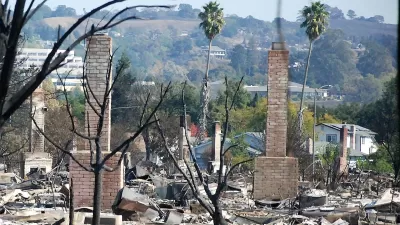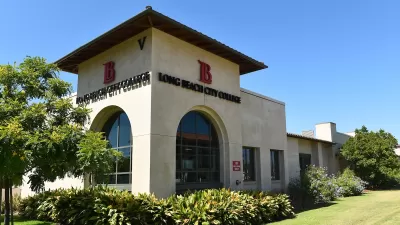Recipients largely spent the monthly $1,000 on basic necessities like housing and food, which mirrors results of similar programs in other U.S. cities.

Business Insider recently reported on the results of the Austin Guaranteed Income Pilot — the first program of its kind in Texas — which gave 135 low-income families $1,000 a month for a year. Participants were allowed to spend the money however they wished, and after the pilot ended last August, they reported spending more than half of it on housing.
A report from the Urban Institute, a Washington D.C. think tank, said participants in Austin’s program “were ‘substantially more housing secure’ than when they enrolled, while other Texas residents with low incomes became ‘modestly less housing secure’ over the same period,” according to the Insider article by Kenneth Niemeyer.
Niemeyer reports that many other cities around the U.S. are also “experimenting with basic-income projects to address rising homelessness and support their most vulnerable residents,” including Baltimore and Denver. Those programs also reported increased housing security for recipients.
Despite these results, guaranteed-income programs remain controversial. Earlier this month, Harris County, Texas, which includes Houston, launched a guaranteed-income program called Uplift Harris that gives low-income residents $500 a month, but State Sen. Paul Bettencourt sent a letter to the state’s attorney general asking him to declare the program unconstitutional, based on a section of the Texas constitution that says the legislature cannot give any county power to grant public money for the aid of an individual.
“The county's attorney told the Houston Chronicle that Bettencourt was ‘more focused on political games and weaponizing government institutions than making life better for the people of Harris County,’” writes Niemeyer.

Study: Maui’s Plan to Convert Vacation Rentals to Long-Term Housing Could Cause Nearly $1 Billion Economic Loss
The plan would reduce visitor accommodation by 25,% resulting in 1,900 jobs lost.

North Texas Transit Leaders Tout Benefits of TOD for Growing Region
At a summit focused on transit-oriented development, policymakers discussed how North Texas’ expanded light rail system can serve as a tool for economic growth.

Using Old Oil and Gas Wells for Green Energy Storage
Penn State researchers have found that repurposing abandoned oil and gas wells for geothermal-assisted compressed-air energy storage can boost efficiency, reduce environmental risks, and support clean energy and job transitions.

Santa Barbara Could Build Housing on County Land
County supervisors moved forward a proposal to build workforce housing on two county-owned parcels.

San Mateo Formally Opposes Freeway Project
The city council will send a letter to Caltrans urging the agency to reconsider a plan to expand the 101 through the city of San Mateo.

A Bronx Community Fights to Have its Voice Heard
After organizing and giving input for decades, the community around the Kingsbridge Armory might actually see it redeveloped — and they want to continue to have a say in how it goes.
Urban Design for Planners 1: Software Tools
This six-course series explores essential urban design concepts using open source software and equips planners with the tools they need to participate fully in the urban design process.
Planning for Universal Design
Learn the tools for implementing Universal Design in planning regulations.
Ascent Environmental
Borough of Carlisle
Institute for Housing and Urban Development Studies (IHS)
City of Grandview
Harvard GSD Executive Education
Toledo-Lucas County Plan Commissions
Salt Lake City
NYU Wagner Graduate School of Public Service





























